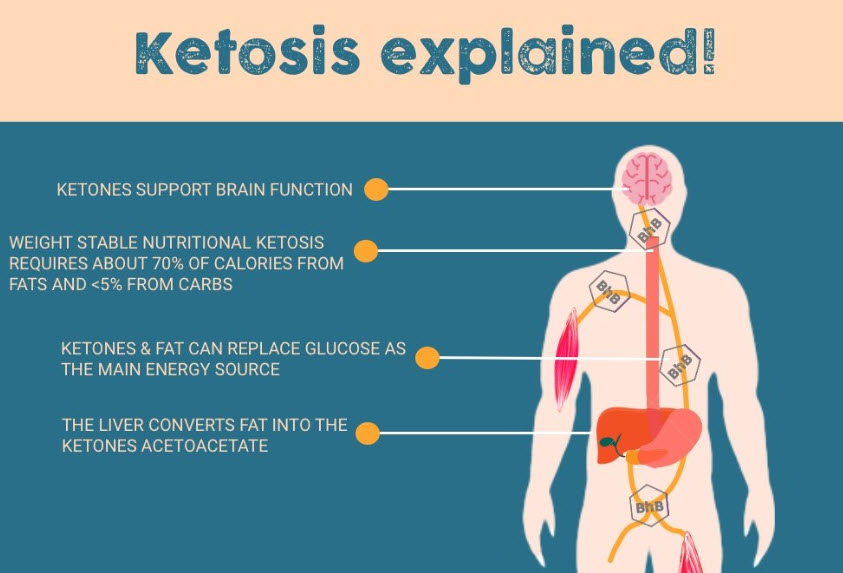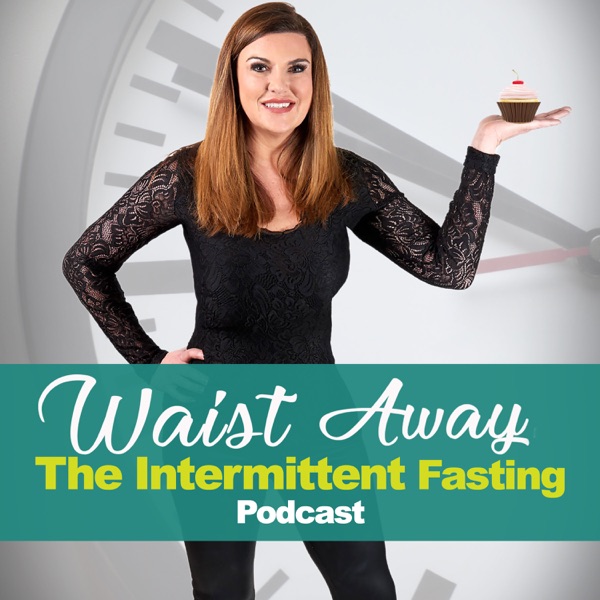
Intermittent fasting (IF) is an eating pattern that involves periods of the day when you don't eat. It's often used as a way to lose weight or improve health.
It's also known to improve the diversity of the gut microbiome and the "good" bacteria that make their home there. This may be especially beneficial for people with leaky gut syndrome.
How Can Intermittent Fasting Impact Leaky Gut Syndrome?
Intermittent fasting is a type of meal timing regimen that cycles between voluntary fasting and non-fasting over a period. This can take the form of alternate-day fasting, weekly day fasting or daily time-restricted feeding.
Depending on the schedule, intermittent fasting can help you manage your leaky gut syndrome by giving your microbiome time to rest and recover. Studies have found that fasting can lead to an increase in the number of beneficial bacteria and a decrease in the amount of harmful bacteria, which may help to protect your gut from inflammation.
During fasting periods, the body switches to burning fat for energy rather than using glucose, which can have a number of benefits. During this time, the liver produces ketones that can fuel your body and signal molecules that have important effects on major organs and brain functions. These changes can fortify your immune system, boost your metabolism and improve your overall health.
Can Intermittent Fasting Help Me Manage My Leaky Gut Syndrome Symptoms?
Leaky gut syndrome is a condition that has been linked to a number of health conditions. This can include autoimmune disorders such as Crohn’s disease and celiac disease, food allergies, and other conditions that cause inflammation in the digestive tract.
Symptoms of leaky gut syndrome include bloating, gas, cramps, food sensitivities and aches and pains in the intestines. There is no clear cause of leaky gut syndrome, but certain factors such as diet, stress and toxins can lead to it.
Although there is no known cure for leaky gut syndrome, avoiding foods that are high in gluten, refined grains, GMOs, and dairy (especially if you are lactose intolerant) can help reduce the symptoms of leaky gut. Seeking the advice of a registered dietitian can also provide valuable guidance.
Can Intermittent Fasting Help Me Heal My Leaky Gut?
Intermittent fasting, also known as IF, has been shown to improve gut health by supporting a healthy balance of good bacteria and reducing inflammation in the body. These benefits may be particularly helpful for those with leaky gut syndrome, an intestinal disorder that allows toxins, bacteria, and other harmful substances to pass through the gut and into the bloodstream.
In addition to promoting a healthy balance of microbes, IF has also been linked to a range of other positive health effects. For example, IF has been shown to decrease inflammation in the body and reduce the risk of diseases like type 2 diabetes and heart disease.
IF has also been shown to increase levels of intestinal stem cells (ISC), which are vital for gut health and immune function. ISC continually divide and form new types of specialized cells that do all sorts of important functions within the gut.
What Can I Eat on an Intermittent Fast?
If you’re planning to use intermittent fasting as a tool for reducing inflammation and improving gut health, it’s important to choose foods that are beneficial for your body. This means choosing nutrient-dense whole foods and drinking plenty of water to help you stay hydrated.
Vegetables, fruit and whole grains are all a great addition to your IF diet. They contain a variety of vitamins, minerals and antioxidants, which promote good health.
Veggies are also a great source of fiber, which is essential for keeping you feeling full and avoiding constipation. Moreover, they provide the essential micronutrients you need to keep your digestive system healthy and functioning properly while you’re on a fast.
During your fasting window, it’s important to avoid processed foods and high-sugar fruits. Instead, try consuming vegetables such as broccoli, brussels sprouts, cauliflower and cabbage that are high in vitamin C and fiber.
Frequently Asked Questions
Intermittent fasting can help you shed belly fat
To find solutions, it is important to question the status quo. Traditional wisdom suggests that exercise and caloric reduction are the best ways to lose belly fat. However, new research suggests that intermittent fasting might be a more effective and quicker way to lose fat.
Intermittent fasting allows you to eat your food within an 8-12-hour timeframe each day. There is a 12--16 hour gap between meals. Intermittent fasting doesn't mean you have to worry as much about portion control and calories counting than you would when you were under consistent calorie restrictions.
When practiced correctly, intermittent fasting can ramp up metabolism and burn stored fats more efficiently than other methods of long-term weight loss. It can also improve mental clarity and digestion, lower inflammation, and reduce the risk of chronic diseases such type 2 diabetes.
It is also easy to practice intermittent fasting. Just set a timer for what you eat and stop eating until that timer goes off. Intermittent fasting can be a quick and effective way to reduce belly fat, improve health outcomes, and increase your overall health.
Intermittent Fasting can help you jumpstart your weight-loss journey. But, it's important that you remember that it's not an all-encompassing solution. It's important to eat healthy, nutritious food during your meals and get enough exercise. If you are pregnant or breastfeeding or have any other medical conditions, it is a good idea consult your doctor before trying a new diet.
Is 16/8 intermittent fasting right?
If you're looking for dietary changes, taking into consideration your current lifestyle and intermittent fasting can make a big difference. 16/8 Intermittent fasting is an eight-hour fasting period that involves eating and fasting 16 hours per 24-hour cycle. This method of intermittent fasting has been known to have a host of health benefits; however, it is important to research and understand if it's right for you.
Delving into the specifics of 16/8 intermittent fasting will better prepare you for making this decision. The goal is to reduce overall calories without feeling uncomfortable or restricted. It could be as simple as skipping certain meals during the day or eating at certain times such as breakfast and lunch. To stay on track with your nutrition goals, it is important to understand how much food you eat and how often.
Knowing your body's needs will help you determine whether 16/8 is right for you. Variables such as activity level, hormonal imbalances, medical conditions, stress levels, age, and genetics come into play when evaluating one's dietary preferences and food choices. It is possible that intermittent fasting is not the right choice for you. You have many options.
There is no one body like another. Your efforts to choose the best diet for you will be rewarded. You can assess your body and decide if 16/8 intermittent Fasting is right for you.
What science has to tell us about intermittent fasting
Discovering science's benefits of intermittent fasting can help us make better lifestyle choices. Intermittent eating is a strategy that allows you to eat only within a set timeframe and then omit food from the rest of your day. If done properly, fasting is believed to improve cognitive performance as well as metabolic health.
How this works requires that we examine the internal mechanisms of intermittent fasting. Intermittent Fasting can trigger a change in metabolism. It lowers sugar levels and encourages cells to use fat as their primary energy source. This helps in weight loss, as it burns stored calories instead of relying upon recent food for energy. Additionally, this process encourages the utilization of glucose, which is important in protecting normal metabolic function.
Research into intermittent fasting shows that this may promote increased autophagy* and have anti-aging properties. Autophagy can be translated as "self-eating" in English and refers the essential cellular process by which unutilized or damaged proteins are recycled to preserve healthy cells. While there is still much to learn about this potential benefit, we are optimistic about what we know.
Intermittent fasting appears to have positive health effects. However, it's a good idea not to change your lifestyle without consulting your physician. Healthy modifications should be slowly made. A balance should be achieved between your diet and your activity levels. Talk to an expert to learn how intermittent fasting may work for you.
Who says intermittent fasting shouldn't be practiced?
It is equally important to understand who should and shouldn't do intermittent fasting. Intermittent fasting may have many health benefits but it might not be right for everyone.
Intermittent fasting is not recommended for pregnant women or those who are trying to conceive. This is because there is no clinical evidence to support its safety during pregnancy. Recovering from an eating disorder or someone with disordered appetite might find that restricting one's diet triggers unhealthy eating behaviors.
Let's say you take insulin or suffer from hypoglycemia. Your doctor should be consulted before you try intermittent fasting. They can help to prevent low blood sugar from becoming a problem. Lastly, individuals engaged in heavy exercise may want to look into short-term (e.g., 12-hour) eating windows rather than the 16/8 approach that characterizes most standard forms of intermittent fasting.
To understand the effects of intermittent fasting on your body, it is important to seek professional advice.
Can I drink water if I am intermittent fasting?
You can still drink water during intermittent fasting. Your body will be more balanced if you keep it hydrated. When fasting for long periods, certain vitamins and minerals can be flushed out of the body through sweat and urine, which is why staying hydrated is so important. Water helps to flush out toxins and aids in digestion. It is vital to maintain a healthy body during intermittent fasting. This should not be overlooked!
Statistics
- IF participants) IF resulted in weight loss, ranging from 0.8% to 13.0% of baseline body weight (Table 1). (ncbi.nlm.nih.gov)
- The rigor of fasting also varied, with several studies allowing 25% of regular caloric consumption during fasting periods. (ncbi.nlm.nih.gov)
- Fat consumption was examined in 1 study, which compared dietary fat intake of 45% versus 25% at the expense of carbohydrate intake. (ncbi.nlm.nih.gov)
- In 2018, 63.1% of Canadian adults were overweight or obese. (ncbi.nlm.nih.gov)
External Links
nejm.org
doi.org
- Free Full-Text
- 24-Hour Fasting with Diabetes: guide to physicians advising patients on medication adjustments prior to religious observances (or outpatient surgical procedures) - Grajower - 2011 - Diabetes/Metabolism Research and Reviews - Wiley Online Library
pubmed.ncbi.nlm.nih.gov
- Intermittent fasting - Is it a useful tool in treating diabetes? PubMed - A review of literature and a guide to primary care physicians
- Daily Fasting Improves Health and Survival in Male Mice Independent of Diet Composition and Calories - PubMed
sciencedirect.com
- Influence of short-term repeated fasting on the longevity of female (NZBxNZW)F1 mice - ScienceDirect
How To
Eating during the Eating-Window on an Intermittent Fasting Plan
Many people find intermittent fasting difficult. To succeed on any fasting journey, it is important to understand the many options for eating your daily nutrients and which methods might be better for you.
The timing and method in which you eat foods can be controlled to achieve seamless optimization. Your "eating time" is a key factor in maintaining a healthy lifestyle and a fasting regime.
Determining when to begin and end your day's meals ensures that you have all the energy you need throughout the day while still setting aside energy to burn - and that's where optimal eating windows come into play.
Intermittent fasting refers to the digital portioning of larger multi-meal meal plans. This allows for fewer food intakes at specific times during each 24-hour cycle. This helps manage your digestion, elimination process, and hormone production with less overall stress on these systems due to fewer total meal sessions every day.
If you have the ability to correctly place the ingredients, participating in an intermittent fast meal plan will make it easy to manage your calorie and macronutrient intakes. You can start today by understanding your body's needs, and then deciding what schedule is best to promote healthier eating habits.
Resources:
 |
[Doctorly Unhinged - EP1] Ozempic Woes, DEBUNKING Intermittent Fasting, and the DANGERS of ManicuresSUBSCRIBE TO OUR PODCAST! https://doctorly.podlink.to/unhinged Is this trending medication that’s been touted to cause dramatic weight loss changing |
 |
The Good Life: Intermittent fasting: Ideal for weight loss?We decode the hype around one of the most popular eating methods for weight loss. Is intermittent fasting for everyone? #thegoodlife #intermittentfasting |
 |
Intermittent Fasting: A Two-Month Experiment. Does It Work? | Talking Point | Full EpisodeAfter drinking sugar-laden bubble tea three times a week for a month for an earlier Talking Point episode, host Steve Chia is ready to lose the weight he |
 |
Intermittent Fasting May Have Health Benefits Beyond Weight Loss | TODAYAccording to an article in the New England Journal of Medicine, new evidence suggests that intermittent fasting could provide many health benefits beyond |
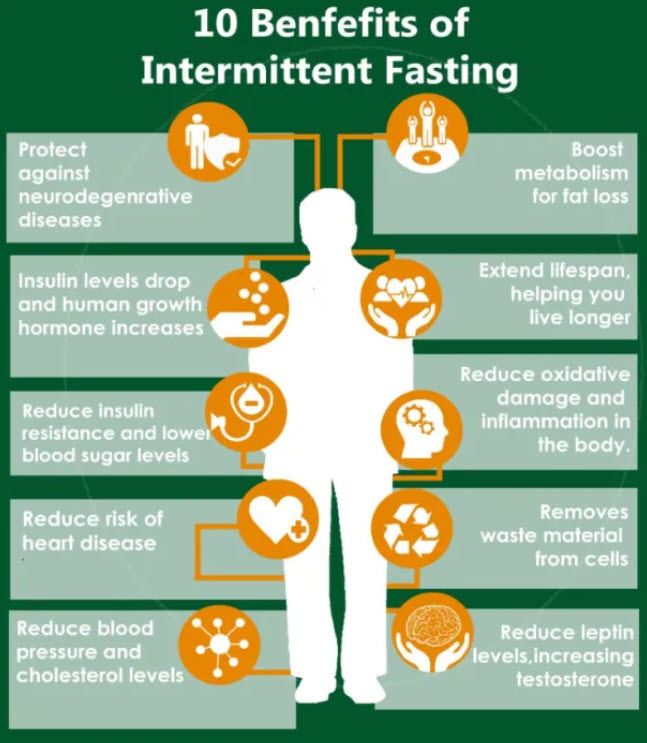 |
Intermittent Fasting For Weight LossWeight loss with Ketosis |
 |
Don’t know whether to cut or bulkDon’t know whether to cut or bulk |
 |
What’s your favorite way to eat chicken?What’s your favorite way to eat chicken? |
 |
Intermittent Fasting TESTED - 30 Day Before & AfterGo to https://NordVPN.com/goalguys and use code GOALGUYS to get a 2-year plan plus 1 additional month with a huge discount. It’s risk-free with Nord’s 30-day |
 |
Intermittent Fasting and Low-Carb DietIf you want to lose weight, try combining intermittent fasting with a low-carb diet. Both methods help you lose fat and control health conditions... |
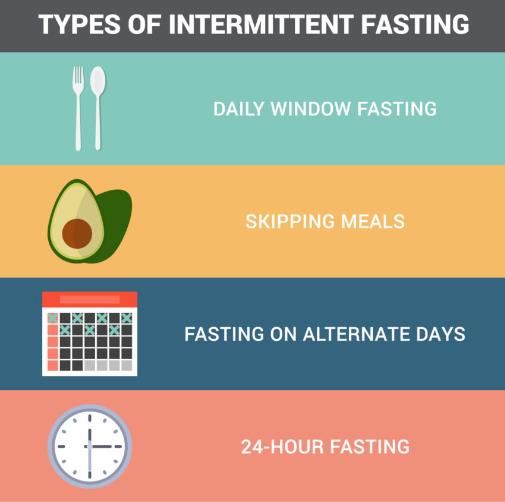 |
Intermittent Fasting For Pregnant WomenWhile intermittent fasting for pregnancy has its benefits, it can also be dangerous. Read on to learn more about the risks and benefits of.. |
 |
Intermittent Fasting Guide for 2022 | Doctor Mike HansenIntermittent Fasting Guide for 2022 | Doctor Mike Hansen Did you know that it's been predicted that by 2030, more than half of the U.S population will be |
 |
How to do Intermittent Fasting: Complete GuideJoin my Email List: https://www.thomasdelauer.com Check out Thrive Market: http://ThriveMarket.com/Thomas Follow More of My […] |
 |
Intermittent Fasting Myths - Top 5 | Jason FungI cover the most important myths about intermittent fasting and why they are not true. Check out my website at https://www.doctorjasonfung.com and blog at |
 |
How Intermittent Fasting Affects Your Body and Brain | The Human BodyStars like Beyonce and Hugh Jackman have spoken out about following intermittent fasting plans to get in shape. How does intermittent fasting work? Here's what |
 |
How Autophagy WorksAutophagy is a dynamic degradation system that promotes tumor survival. It also promotes the growth of established tumors and facilitates metastasis. .. |
 |
How to Start Intermittent Fasting in 2023 - UPDATED INFORMATION & SCIENCEJoin Thrive Market Today to get 30% Off Your First Order AND a Free Gift Worth up to $60! http://ThriveMarket.com/Thomas How to do Intermittent Fasting in |
 |
Intermittent Fasting 8/16You may have heard of the intermittent fasting 8/16 or 12/12 time restriction. This type of fast requires you to go without eating or drinking for.. |
 |
Intermittent Fasting For WomenSide effectsWomen who are looking for a way to lose weight can try intermittent fasting. However, there are several side effects to this type of.. |
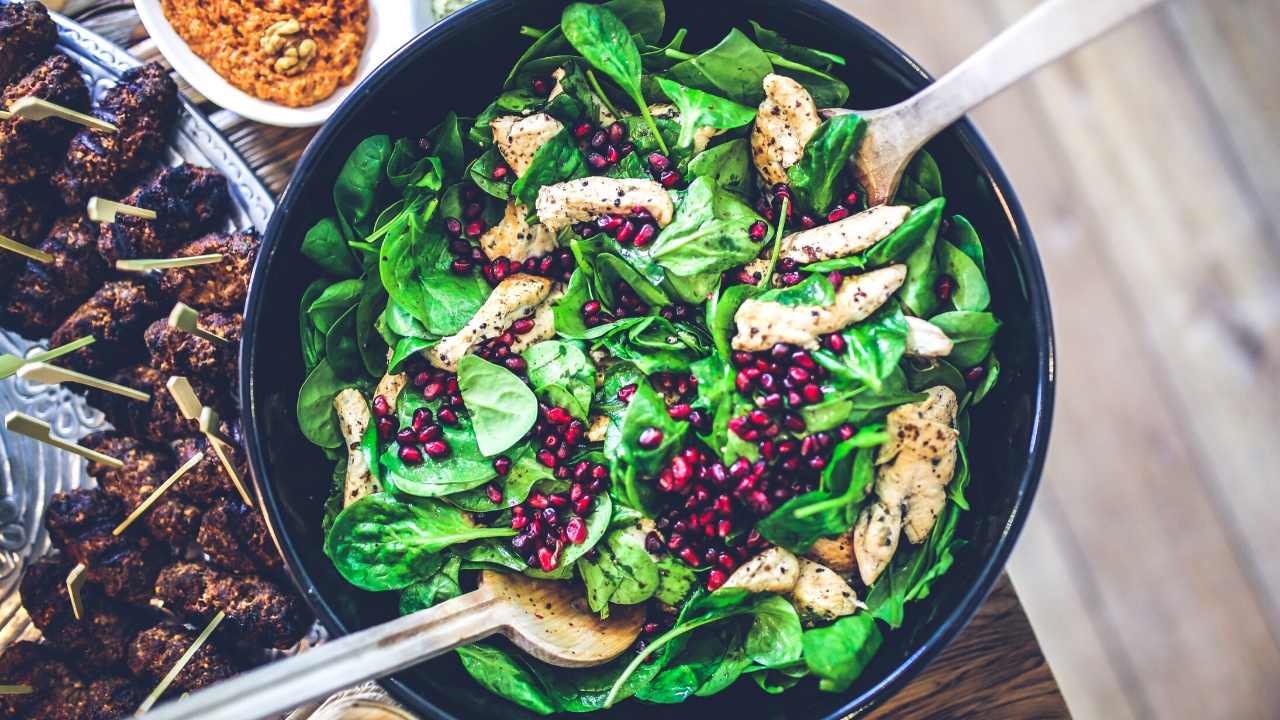 |
How Much Cholesterol in a DayHow much cholesterol in a day depends on a number of factors. While dietary cholesterol is not necessarily bad, excess intake can lead to serious.. |
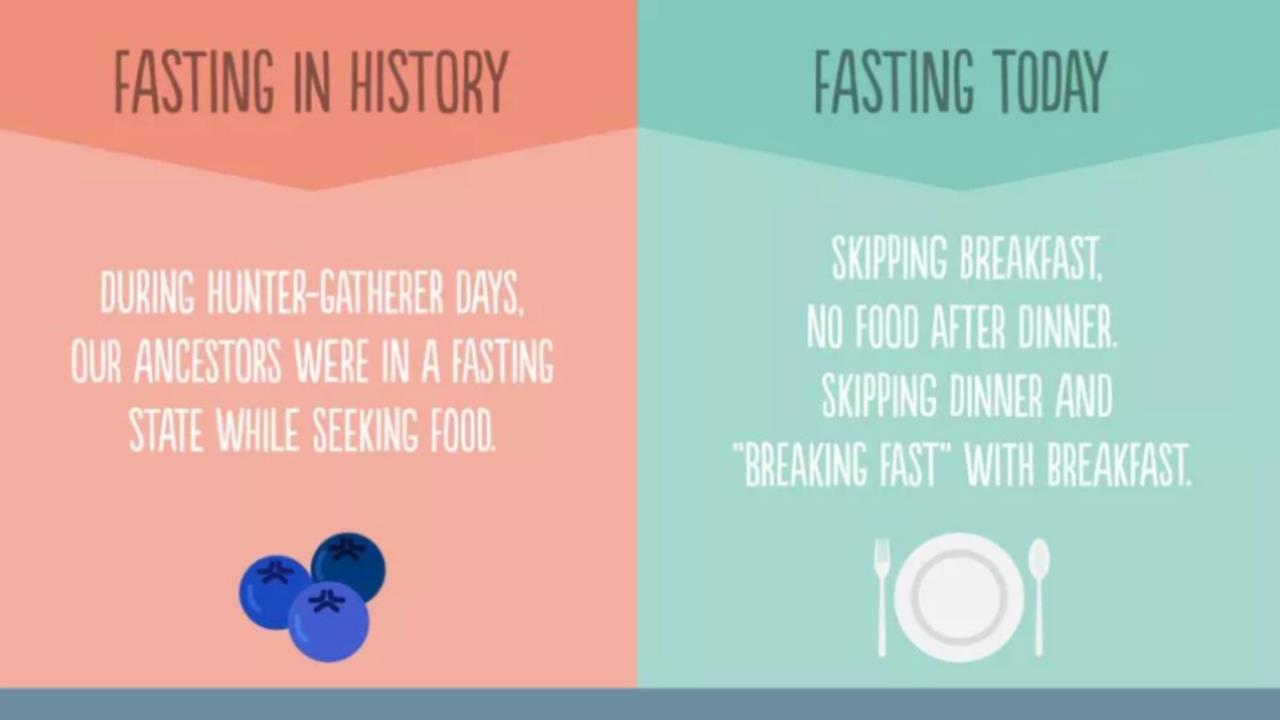 |
Is Skipping Breakfast Right For You?Skipping breakfast has a number of benefits, including the ability to lose weight, improve training performance, and increase growth hormone levels... |
 |
The Benefits of the AIP DietThe AIP diet has a number of health benefits. Besides reducing inflammation and weight, this diet also provides essential nutrients. These include.. |
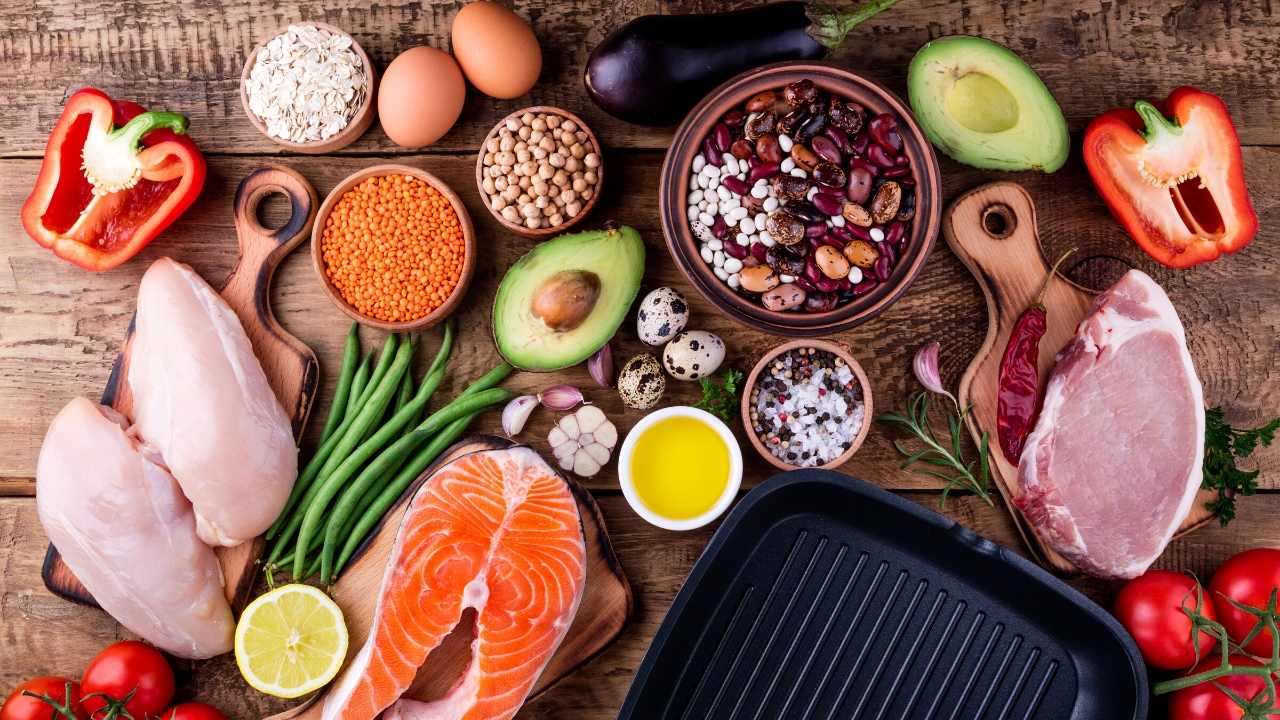 |
Is Eating Only One Meal A Day a Good Idea?Eating only one meal a day is not a good idea, and it is not sustainable for most people. It may help some people lose weight, but for the average.. |
 |
What Are the Side Effects of Water Fasting?Water fasting is a form of fasting, where a person consumes only water during a period of time. It may be undertaken for medical reasons or for.. |
 |
Intermittent Fasting and Blood PressureResearchers have discovered that intermittent fasting may have positive effects on blood pressure. Blood pressure affects the risk of heart disease,.. |
 |
Intermittent Fasting For Weight LossAll you need to know about Intermittent fasting and weight loss |
 |
Is it Okay to Drink Coffee on Intermittent Fasting?You might have heard that it's okay to drink black coffee on intermittent fasting. But did you know you can also enjoy a cold brew? What about.. |
 |
How to Start Fasting 48 HoursIf you are considering fasting 48 hours, here are some of the benefits. There are also a few precautions you should keep in mind before you begin. In |
 |
A Psoriasis Diet Can Help Reduce the Severity of Your PsoriasisA psoriasis diet should consist of eating foods that are rich in vitamin A and C, as well as avoiding sugars and processed foods. Avoid eating red.. |
 |
The DASH Diet to Prevent HypertensionThe DASH diet is an eating plan that was developed by the National Heart, Lung, and Blood Institute. It focuses on fruits and vegetables, low-fat.. |
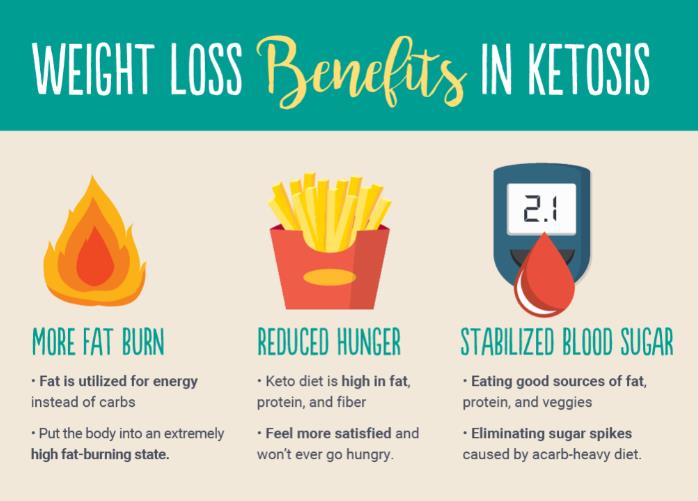 |
LIFE Fasting Tracker - LIFE Apps | LIVE and LEARNThe best, and free, intermittent fasting tracking app for iPhone and Android. Easy to use. Supports all fasting types. Fast with friends. Download for Free. |
 |
Intermittent Fasting AppsIf you're on an intermittent fasting regimen, it's important to keep track of your food and exercise intake. Several apps can help you stay on track.. |
 |
Time Restricted EatingIf you're interested in losing weight or improving your health, you may want to try Time-restricted eating or intermittent fasting. Read on to learn.. |
 |
Reactive HypoglycemiaThere are several different ways to treat reactive hypoglycemia. The first step is to reduce or eliminate your caffeine and alcohol intake. You may.. |
 |
Low-Carb Meal PlansLow-carbohydrate meal plans are based on limiting the amount of carbohydrates you eat. Instead, you replace foods that are high in carbohydrates with |
 |
Intermittent Fasting: What is it, and how does it work?Intermittent fasting involves switching between fasting and eating on a regular schedule. This type of fasting could manage your weight or even some forms of |
 |
How Autophagy WorksAutophagy is a dynamic degradation system that promotes tumor survival. It also promotes the growth of established tumors and facilitates metastasis. |
 |
The 12-Hour Fast - What Are the Benefits of a 12-Hour Fast?The 12-hour fast is a popular dietary approach that can help you lose weight. It forces your body to rely on its stored fats for energy. It has also.. |
 |
Fasting Before Working OutFasting before a workout has its advantages. Not only does it provide more energy during a workout, it can also help with digestion, which can take.. |
 |
Healthy Ways to Lose WeightLosing weight is a great way to improve your health and reduce your risk of certain conditions. It can also reduce your total cholesterol levels and.. |
 |
Intermittent Fasting 101 — The Ultimate Beginner's GuideThis is a detailed guide to intermittent fasting (IF). Studies show that it can help you lose weight, improve health and perhaps even live longer. |
 |
Top Intermittent Fasting AdvantagesThere are many advantages to intermittent fasting as a strategy for weight loss. Intermittent fasting can work with any diet... |
 |
Weight Loss (Low Carbohydrate Diets)Low carb diets have often been used throughout history for weight loss. Although sometimes called a fad, low carb diets have actually more science... |
 |
The Key Factors of Weight LossWeight gain and obesity, like any medical disease, is multifactorial. This means that there are many factors that cause weight gain... |
 |
How Doctors Lose WeightHow do doctors lose weight? For their patients, doctors often advise following standard diets, but when trying to lose weight themselves... |
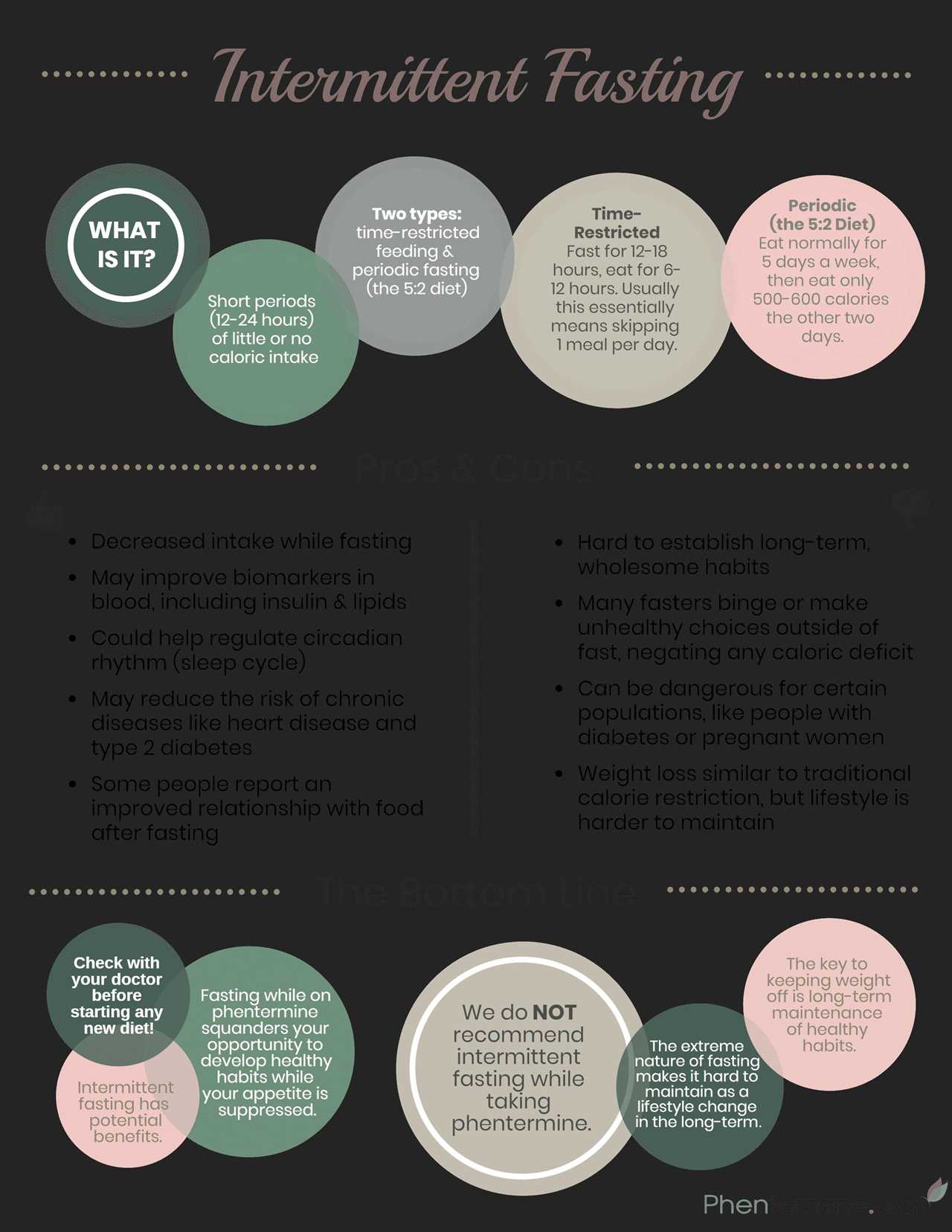 |
Is intermittent fasting good for you?Intermittent fasting isn't new, but it's gaining followers. What's the appeal? |
 |
Vacation Weight Loss PlanWhat is the best vacation weight loss plan? Most people [...] |
 |
Should I (lean-) Bulk or Cut?Should I (lean-) Bulk or Cut? |
 |
100lbs down!100lbs down! |
 |
Calculating the Maintenance calories on workout and rest daysCalculating the Maintenance calories on workout and rest days |
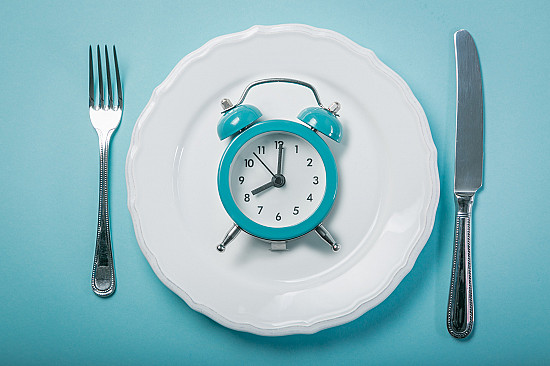 |
Intermittent fasting: The positive news continues - Harvard HealthHarvard research about Intermittent fasting ... |
 |
Rat Model: Intermittent Fasting Normalizes High Blood Pressure Induced by Harmful Intestinal BacteriaPrevious studies have shown that a harmful combination of gut bacteria can cause high blood pressure (hypertension) in humans and other animals. Having a |
 |
Your D-I-E-T Meditation PlaylistIn my TEDx talk, I suggest recasting the noxious word “diet” into D-I-E-T — a reminder to ask ourselves “Did I Enrich Today?” One of the ways we can enrich…The |
 |
Holiday Health (Damage Control)With the holidays on us, maybe your intermittent fasting schedule isn’t as rigorous as it once was. That’s not necessarily a bad thing, because social |
 |
You Got a Zero.Zero’s not been my hero. Through grade school and college, zeroes used to be something of a monster in my mind. Teachers illustrated just how bad a zero is |
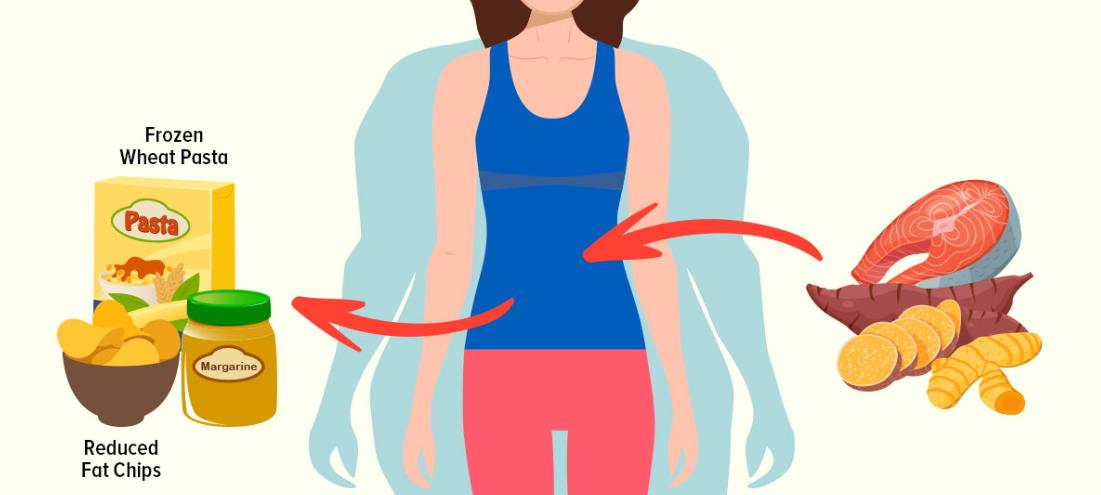 |
Six ways to do intermittent fasting: The best methodsIntermittent fasting is an increasingly popular diet option for weight loss. There are several programs, but this guide can help you find out which one is |
 |
Intermittent Fasting ExperiencesI took part in an energetic discussion of intermittent fasting experiences as part of the release of Women Action Takers Who Gained By Losing for which I wrote |
 |
How to Break a Fast: What to Eat After FastingHow to Break a Fast: What to Eat After Fasting Written by Stephen Anton PhD on May 15th, 2022 How to break a fast? This is an excellent question and one |
 |
How to Believe in Yourself: 10 Tips for Becoming Your Best SelfHow to Believe in Yourself: 10 Tips for Becoming Your Best Self Guest Post by William Anton PhD on June 12th, 2022 William D. Anton, Ph.D is a renowned |
 |
36-Hour Fast (Monk Fast): Everything You Need to Know36-Hour Fast (Monk Fast): Everything You Need to Know Written by Stephen Anton PhD on July 5th, 2022 The 36-hour fast is a challenging fast in that it |
 |
Diet A to Z: Intermittent FastingThe two-day-a-week diet: How intermittent fasting can help you lose weight and boost your health. |
 |
18/6 Intermittent Fasting: Is It the Right Plan for You?18/6 Intermittent Fasting: Is It the Right Plan for You? Written by Stephen Anton PhD on November 29th, 2022 Intermittent fasting has become one of the |
 |
20/4 Intermittent Fasting: The Pros and Cons of a Longer Fast20/4 Intermittent Fasting: The Pros and Cons of a Longer Fast Written by Stephen Anton PhD on January 25th, 2023 There are so many different approaches to |
 |
Everything you need to know about the OMAD dietThe one meal a day (OMAD) diet is a type of time-restricted eating intermittent fasting protocol that involves—you guessed it—eating just one meal a day and |
 |
The ultimate guide to intermittent fasting 20/4When we’re trying to lose weight, we usually think about what we can and can’t eat. Bye-bye beer and burgers. Helloooo carrots and kale! But with intermittent |
 |
The Flexitarian Diet — A Beginner’s Guide by SimpleFrom workouts to working hours, most of us enjoy a little flexibility. So it’s no wonder that when it comes to what we eat, a little wiggle room goes a long |
 |
The Mediterranean diet for weight lossPeople have loved the Mediterranean diet for many years. It’s not a “weight loss diet,” per se. It’s just how people in places close to the Mediterranean Sea |
 |
The complete guide to 18/6 intermittent fastingIntermittent fasting (IF) regularly shows up as many health-seekers’ go-to eating plan, and for good reason. Research suggests that it could have a profound |
 |
The Impact of Different Drinks during Intermittent Fasting: Benefits, Downsides, and ResearchA common dietary strategy called intermittent fasting (IF) alternates between periods of fasting and eating. Apart for water, black coffee, and tea, people |
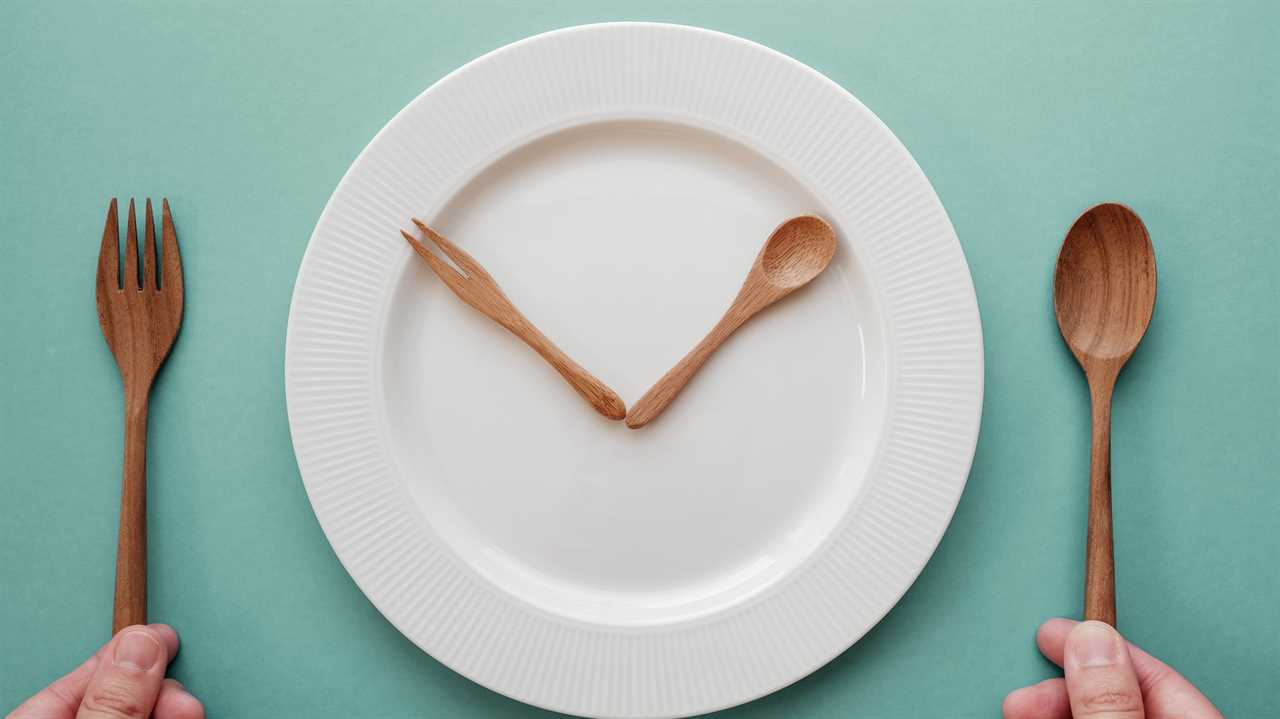 |
Intermittent fasting (IF): Your complete guide - Diet DoctorIntermittent fasting is popular, effective, and easy. This guide tells you how to get started with a successful intermittent fasting routine. |
 |
Intermittent Fasting and Muscle Gain: Benefits, Downsides, and ResearchA common dietary strategy for people who want to increase their muscle mass while also aiding fat loss is intermittent fasting (IF). Although IF has mostly |
 |
Burning Belly Fat: Intermittent Keto vs Intermittent Fasting – Which is More Effective?Visceral fat, commonly referred to as belly fat, is the fat that builds up around the midsection and is associated with a number of health issues, such as |
 |
When you’re ill, is intermittent fasting safe? Precautions and considerations.Those who want to reduce weight, get healthier, or even live longer are increasingly following the trend of intermittent fasting. Yet if you’re sick, you might |
 |
When Intermittent Fasting Stops Working: Reasons, Solutions, and EffectivenessRecently, intermittent fasting has become more well-liked as a technique to reduce weight, enhance general health and longevity, and even improve mental |
 |
5 Intermittent Fasting Methods, ReviewedIntermittent fasting comes in many shapes and forms. This article reviews its pros and cons so you can decide if it's worth a try. |

